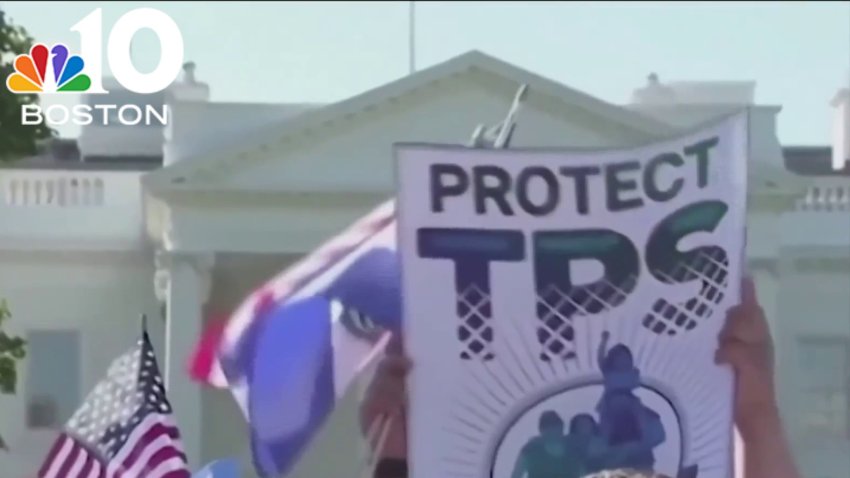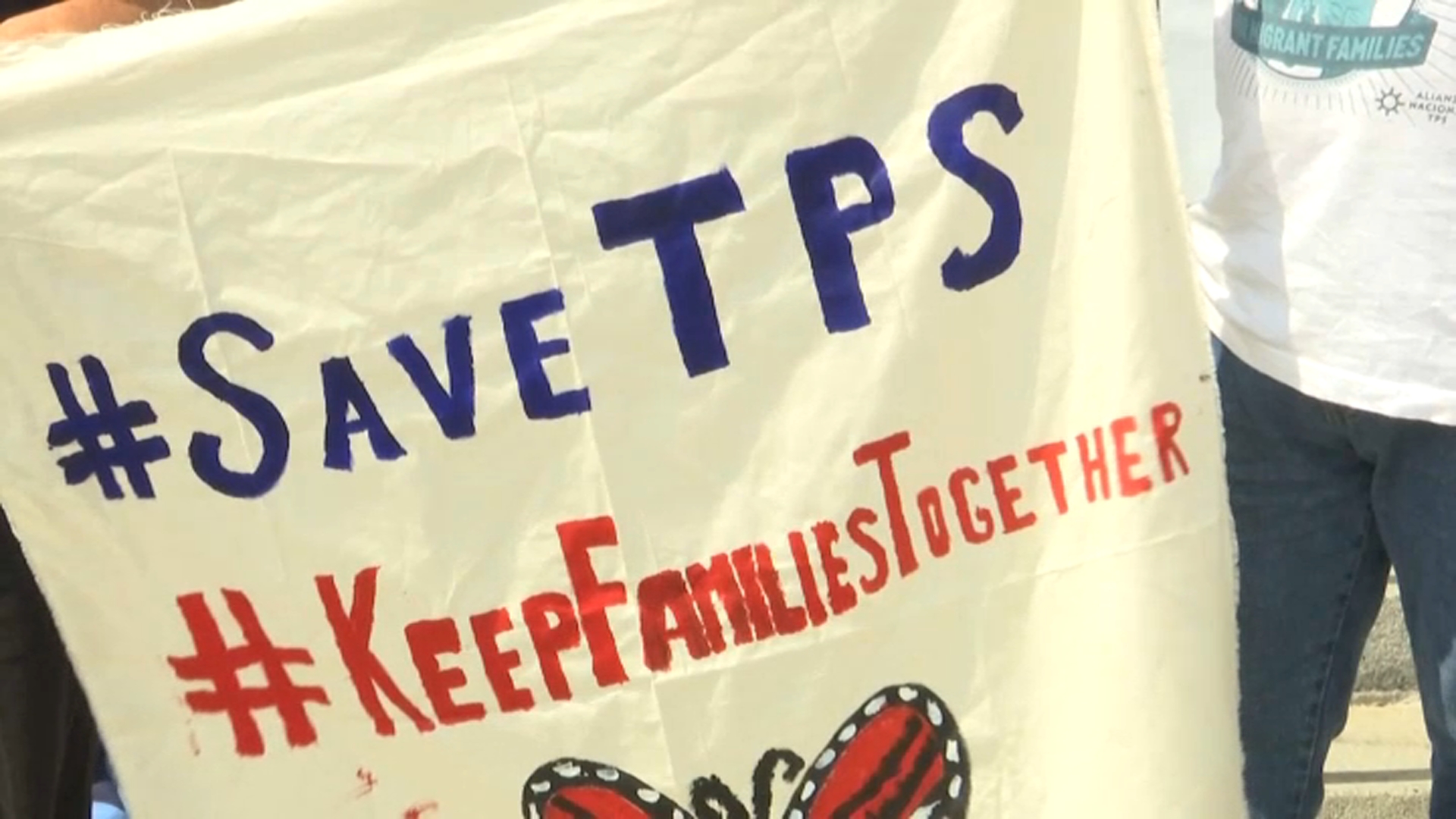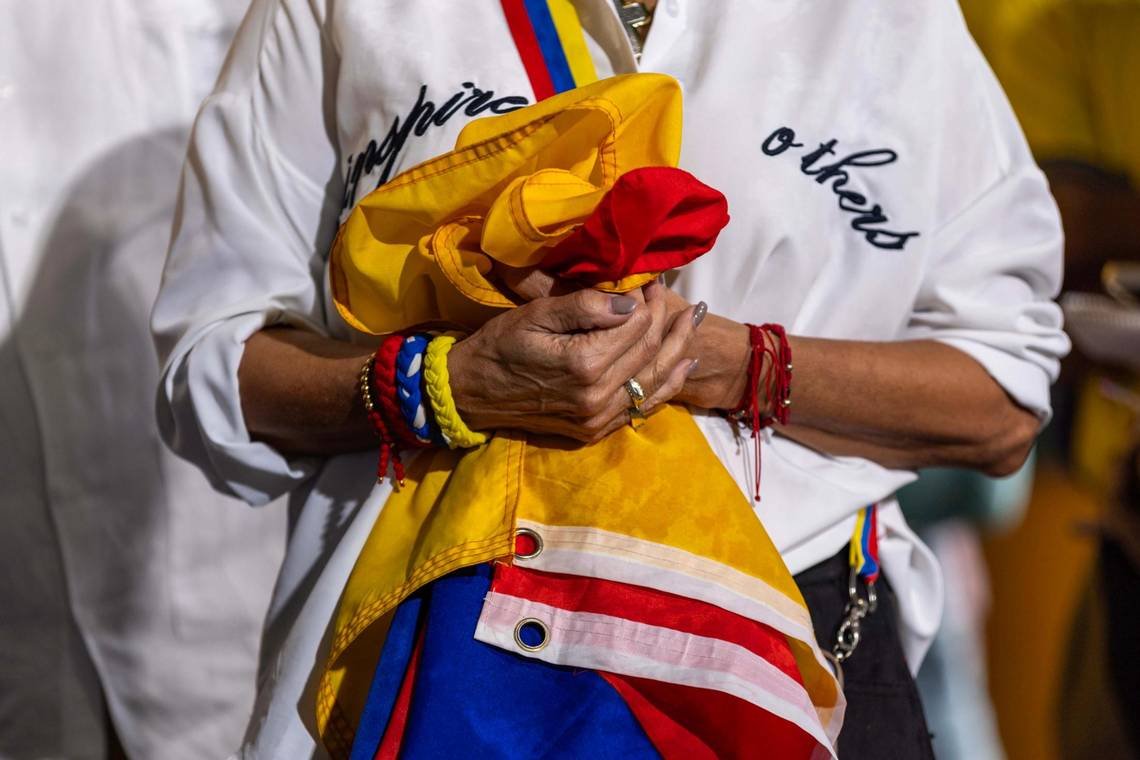A federal judge is weighing whether to stop a move by the Trump administration to terminate parole for more than half a million immigrants in the country, including the families of servicemembers and Ukrainians fleeing the war in Russia.
“The United States has a moral obligation to take care of its neighbors,” said Pastor Dieufort Fleurissaint, the chair of Haitian American United Inc.
He is among a group of community activists who joined immigrant advocates at Boston's federal court Monday calling on the government to reverse course on terminating temporary protected status, also known as TPS, for some immigrants.
WATCH ANYTIME FOR FREE
Stream NBC10 Boston news for free, 24/7, wherever you are. |
They say a notice from the U.S. Department of Homeland Security on the Federal Register last month will put over half a million immigrants out of status, with some out of work and others without a place to go.
“That includes asylum, that includes protected status, it includes green cards — if you are eligible, employment-based visas,” said Justice Action Center Legal Director Ester Sung. “What the federal government has done is it has said we will not process any of these applications.”
Get updates on what's happening in Boston to your inbox. Sign up for our News Headlines newsletter.

Sung, along with Human Rights First, has been fighting the Trump administration in court since February.
They are seeking to convince a judge that the government’s move could have devastating consequences for people who have been in the country under humanitarian relief for years.
“With the passage of time, people whose periods of parole expire, they have no other option, even if they are eligible for other lawful statuses, and even if they have applied for those other lawful statuses in a timely fashion, the government has said, 'No, we will give you no options whatsoever,'” Sung said.
More on immigrants' TPS status
The government argues the courts have no authority over the matter and that it’s the discretion of DHS.
The agency said in the Federal Register, “These programs do not serve a significant public benefit, are not necessary to reduce levels of illegal immigration… and are inconsistent with the administration's foreign policy goals.”
Fleurissaint is holding on to hope that the government will come around and value the contributions of his community.
“They are fleeing violence, they are fleeing their dire situation back home and they definitely can make a home here and participate in all this social fabric of this country, being positive contributors of this country,” he said.
Lawyers for the plaintiffs are trying to get the judge to issue an injunction on this case before April 24, when the parole program ends, otherwise more than 500,000 people will need to leave the country.
A follow up hearing will take place on Thursday to discuss the humanitarian parole program for people from Cuba, Haiti, Nicaragua and Venezuela.




